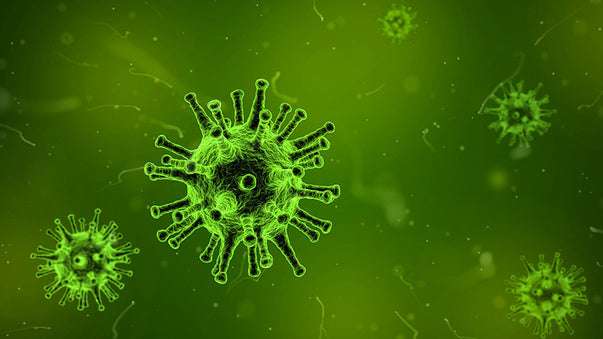Cancer Biochemistry and Medical Cannabis

There is no overall central theme in last week’s health and human enhancement press headlines, but many interesting advances scattered all over the field.
Among intriguing visions of electronics printed on the skin (if the iPhone becomes a tattoo, I guess they’ll call it iSkin) and news of tiny magnetically-controlled medical robots that scan patients from inside, I found it especially interesting to read about one more confirmation of the positive medical effects of cannabis, this time to combat mental aging.
When I was younger I used to think that cancer would be a thing of the past in the Happy New World after 2001. That, and cities of the Moon. We all know that, instead of Stanley Kubrick’s 2001 we got Osama bin Laden’s 2001, no cities on the Moon, and no cure for cancer. But important research results, like the two mentioned below, keep emerging from research labs, and I remain persuaded that someday in this century we’ll be able to consider cancer as a thing of the past. Not today or tomorrow, but read on.
Key cellular switch for lung cancer found. Researchers at MIT have identified a key step in lung cancer evolution. It appears that a cellular switch is involved in the transition from benign tumors known as adenomas to lung adenocarcinoma, an aggressive and often deadly form of cancer. The switch occurs when a small percentage of cells in the tumor begin acting like stem cells, allowing them to give rise to unlimited populations of new cancer cells. The research results, published in Nature, show that blocking this switch in laboratory mice prevents the tumors from becoming more aggressive.Therefore, drugs that interfere with this switch may be useful in treating early-stage lung cancers.
DNA repairing protein could play a role in the onset of cancer. Researchers, led by a team at Johns Hopkins Kimmel Cancer Center, have found supporting evidence that cancer arises when cellular machinery, generally used to repair DNA damage, is diverted from its usual task. The study, published in Cancer Cell, indicates that the chromodomain helicase DNA-binding protein (CHD4), associated with DNA damage repair, could be also associated with the cause of colon cancer and probably many other cancer types. According to the researchers, finding ways to reduce the amount of CHD4 in tumors could open the door to new cancer treatments.
A tiny robot for less invasive colonoscopy. Researchers at Vanderbilt University Medical Center have developed an 18-mm magnetized capsule robot that can be guided by a magnetic field and used to perform colonoscopy. The study, presented at Digestive Diseases Week 2017, shows that the robot is able to perform intricate maneuvers inside the colon while guided by an external magnet attached to a robotic arm. The scientists believe this technology will reduce the potential discomfort of colonoscopies and lead to more people undergoing the life-saving screening test.
Printing electronics on human skin. Engineering researchers at the University of Minnesota have developed a process for 3D printing stretchable electronic sensory devices. The study, published in Advanced Materials, describes a new strategy to integrate wearable electronic devices with human skin, which opens new routes for the biointegration of various sensors in wearable electronics systems, and toward advanced bionic skin applications. The discovery is an important step toward printing electronics on human skin, as well as giving robots the ability to feel their environment.
A patient-friendly virtual doctor explains medical test results to older patients. A computer-generated physician, under development by scientists at the University of Illinois’ Beckman Institute for Advanced Science and Technology and Carle Foundation Hospital’s Research Institute, explains diabetes and cholesterol test results to patients, particularly older adults with lower levels of health literacy, in videos designed for viewing on electronic medical record portals. A research paper published in Journal of Biomedical Informatics has all the technical information.
Cannabis can fight mental aging and restore cognitive functions. Scientists at the University of Bonn and The Hebrew University of Jerusalem have found that cannabis reverses aging processes in the brain. The research results, published in Nature Medicine, show that old laboratory mice regress to the mental state of two-month-old young mice, as indicated by learning capacity and memory performance tests, after a prolonged low-dose treatment with tetrahydrocannabinol (THC), the active ingredient in the hemp plant (cannabis).
More Articles
Don't miss a beat! In our Pulse Newsletter, Thrivous curates the most important news on health science and human enhancement, so you can stay informed without wasting time on hype and trivia. It's part of the free Thrivous newsletter. Subscribe now to receive email about human enhancement, nootropics, and geroprotectors, as well as company news and deals.
Read more articles at Thrivous, the human enhancement company. You can browse recent articles in Thrivous Views. See other Pulse Newsletter articles. Or check out an article below.
-
Zika Virus and Implantable Chips for the Brain
It appears that the Zika virus could be instrumental in fighting glioblastoma, the most common and aggressive brain cancer, and ...
-
In Memory of Hal Finney
Welcome to this new issue of Pulse, your weekly newsletter focused on human enhancement today and tomorrow, brought to you ...


